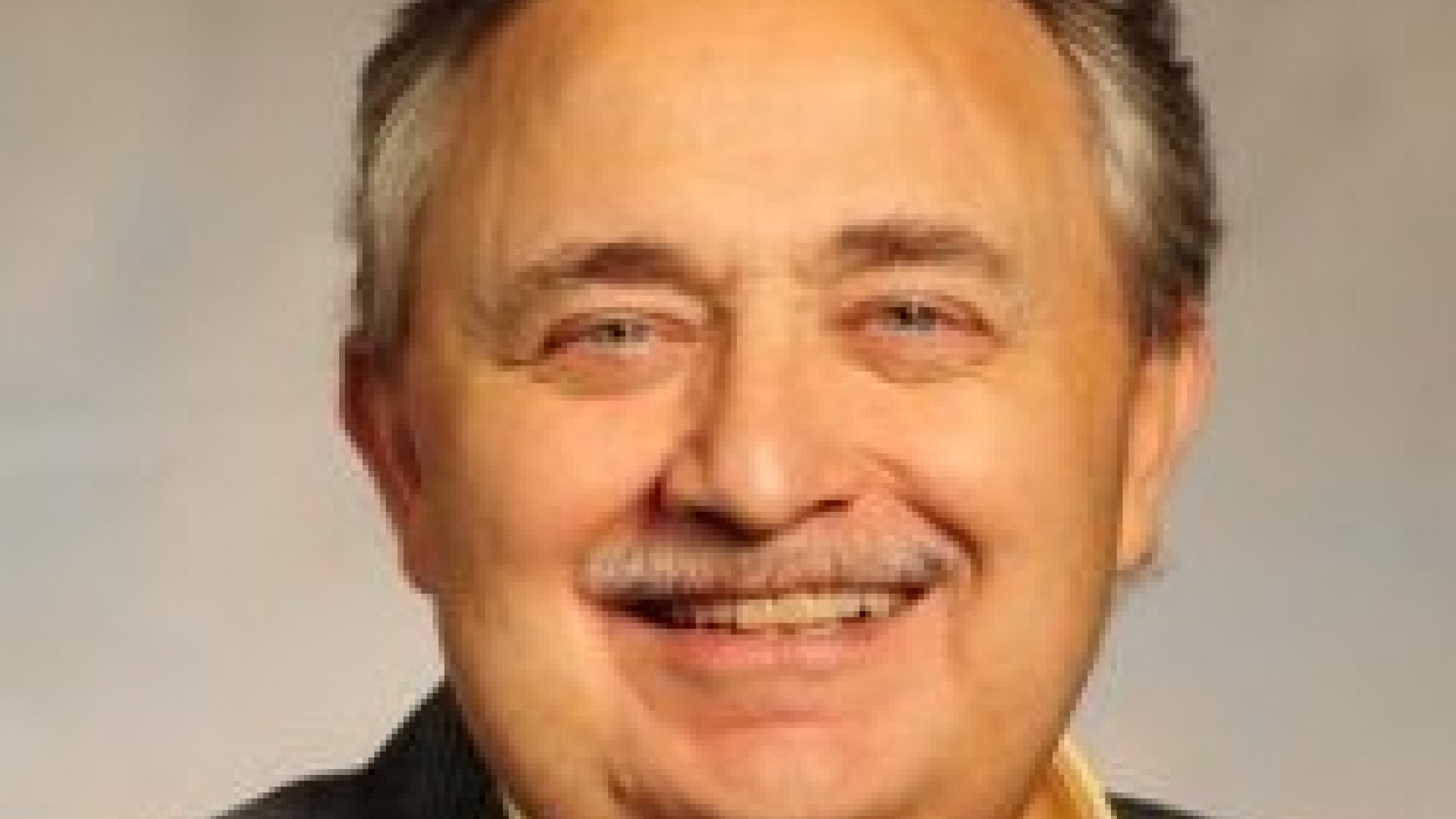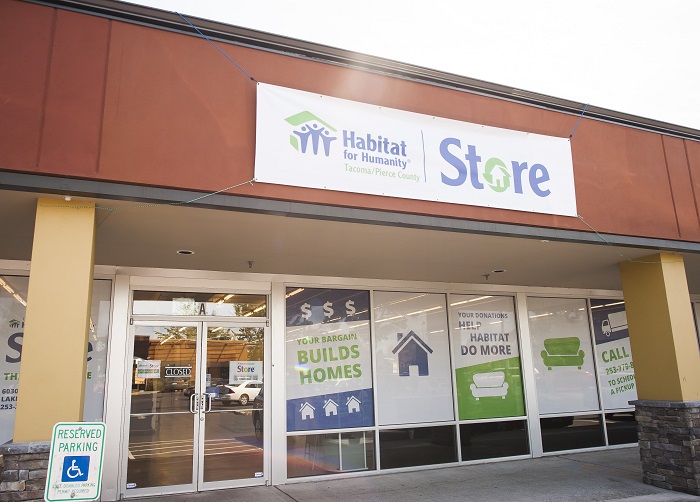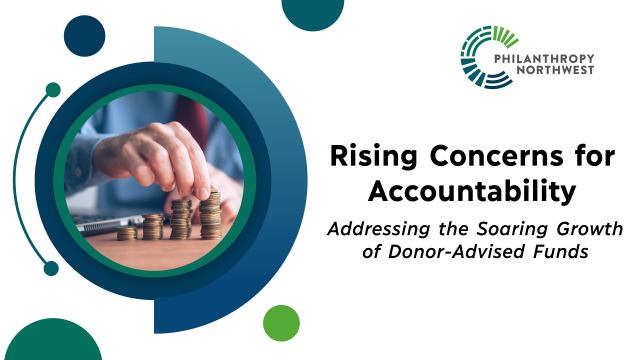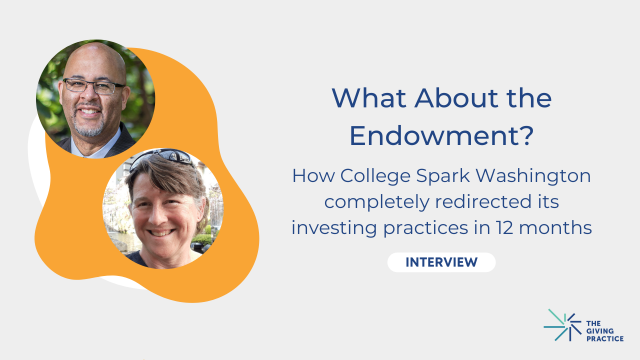
Ken Ristine, Ben B. Cheney Foundation
We've known about impact investing for a long time, but most of the groups the Ben B. Cheney Foundation works with need equity, not debt. As a result, it took a special situation to create our first program-related investment (PRI) last year.
The foundation began grantmaking in 1975 with assets from Ben B. Cheney, a Tacoma lumberman, who passed away in 1971. Our primary focus is to give back to many of those communities where Mr. Cheney’s lumber companies operated. In 41 years, we have awarded $92 million in grants; we currently grant about $3 million each year from northern California to southwest Washington, predominantly in Tacoma-Pierce County.
“We focus on making grants that provide something for an organization above and beyond its regular operating budget," said Brad Cheney, our executive director. "That means a lot of our grants are for equipment or facilities that have an impact over many years.”
What Prompted This Investment?
In early 2015, we were approached by Tacoma/Pierce County Habitat for Humanity, which was working towards opening a second Habitat for Humanity Store and planning more to serve other areas of Pierce County. Habitat for Humanity Stores play an important role helping low-income homeowners obtain supplies for repairs and renovations; they are also a conduit for contractors and individuals to donate usable building materials. Once operating, a store is self-supporting, thanks to the material donations and Habitat volunteers, and usually creates cash flow that can help support Habitat’s home-building mission.
“Opening a Habitat for Humanity Store presents several challenges,” explained Maureen Fife, executive director of Habitat in Tacoma-Pierce County. “First, like any retail store, it takes a while before the operating income meets the cost of running the store. Second, even though we have a charitable mission and attract a special audience, our stores are still subject to the basic rules of real estate: location, location, location.”
When a good location becomes available in the right area, Habitat has to be able to act immediately. This means having the resources on hand to make commitments. But where can those funds come from? Raising money to start a new store can feel like a conflict for a Habitat board, Fife explained. The immediate needs of starting a store can be hard to reconcile with the commitment to mission — but when a Habitat for Humanity Store is done well, it becomes an asset for an organization.
During Habitat's discussions with the Cheney Foundation in 2015, it became apparent that this project would be an opportunity for a PRI. Habitat’s goal was to open its second store in the spring of 2015, in Lakewood, and to open three more stores in key areas in Pierce County by 2020. Our PRI developed around two factors of Habitat’s plan:
- Habitat needed early, flexible money that would be available quickly.
- Over time, the Habitat for Humanity Stores would produce a positive cash flow.
The Cheney Foundation made a $200,000 PRI commitment to Habitat with repayment aligned to fit the project’s needs. This included no payments for the first year, interest-only payments at a 2% rate for two more years, then a seven-year amortization and interest payment schedule for years four through 10.
Since our PRI is earmarked for the Habitat for Humanity Store project, it lessens the Habitat board’s concern about the conflict between fundraising and spending funds to develop stores. It also provides the quick cash needed to tie up a site when a prime location becomes available. Finally, delaying the loan repayment allows Habitat to get more stores into operation before repaying the loan funds.
“We’re excited about using a PRI because there are a number of ways PRIs might help us with our mission in the future," Fife said. "The Cheney PRI will help us learn more about this tool, and we feel confident that the Habitat for Humanity Store expansion will pay off in the future.”
“The Cheney Foundation board found this approach interesting, because it gets to grant the money twice," Brad Cheney added. "Making an outright grant of $200,000 for the Habitat for Humanity Store project would have been a challenge. Our board has made many grants to Habitat, but all for housing projects. With a PRI, they felt they could commit that amount to the project because, in the long run, they’ll get to grant the money again.”

What’s Been Easy?
- Working with our local Habitat organization to structure the deal. Tacoma/Pierce County Habitat for Humanity has done a good job with its financial operations and been open to looking at a variety of strategies for funding is present and future operations. The credit for that goes to both its current executive director, Maureen Fife, and to its board of directors.
- Sizing the loan amount and payments. Good PRIs balance providing enough working capital vs. overburdening an organization with payments. The success of its first Habitat Store and the great opening of the second store allowed us to disburse the $200,000 with great confidence in Habitat's plans.
What’s Been Challenging?
- Being sure that both our foundation's board and Habitat understood what a PRI is and how it works. While PRIs have been around for years, and are becoming more and more common, they are not typical grants. Thanks to the support of our accounting staff, our board was able to understand how the PRI would be counted toward our 2015 minimum distribution requirement, as well as how repayments interest and principal would be treated.
- Understanding risk. It was important to be clear as to how the amount of the PRI, the repayment plan and Habitat’s plan for more stores tied together. Delaying payments, allowing for interest-only payments, and back-loading principle payments are good strategies when they complement the borrower’s plan. While we are still early in the plan, so far this strategy appears to be working.
What Have We Learned?
It's still early, but our greatest learnings so far have been about identifying projects, partners and structuring an agreement. One part of that process was thinking about what we should ask Habitat to report and on what time frame, balancing the burden of reporting with the foundation’s desire to learn from Habitat’s experience.
What’s Next?
While the Ben B. Cheney Foundation is open to looking at more PRI projects, the foundation also remains committed to finding those situation where loan funding is an asset to the project and not a burden. That process will rely upon learning, year by year, from this first PRI and listening to ideas for others over the coming years.
Habitat has reported that it’s identified a site for a third store, and that this PRI experience assisted that process. Progress towards a third Habitat Store in Pierce County is a good sign! By continuing to monitor that progress, through both formal and informal means, we'll determine how to continue our impact investing journey.
Ken Ristine is a senior program officer at the Ben B. Cheney Foundation, one of Philanthropy Northwest's founding members.
If you're interested in sharing an "Impact in Action" story about a Northwest impact investment on our blog, contact Nicole Neroulias Gupte, Philanthropy Northwest communications manager, at ngupte@philanthropynw.org.


